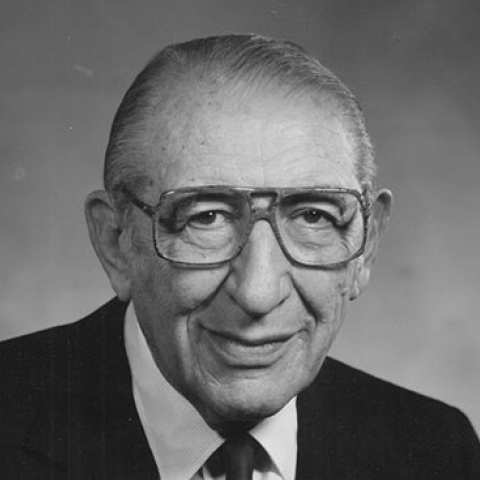MAX M. FISHER
Max M. Fisher was born on July 15, 1908 in Pittsburgh, Pennsylvania to Velvil Fisch (William) and Malka Brody (Mollie). His parents were Russian Jews.
Fisher grew up in Salem, Ohio. Fisher made his fortune after he convinced a local industrialist to help finance an oil refinery business with him, that business was Aurora Oil. Over the years that followed, Max made several successful deals and partnerships that expanded his company and made himself and his partners very prosperous.
But business and financial success was just the beginning of Fisher’s impact on the world. Fisher became a giant in the Jewish community focusing on Israel and the support available from American Jewry. He became Chairman of the United Jewish Appeal and then the United Israel Appeal. He was instrumental in the Reconstitution of the Jewish Agency for Israel and was elected Chairman of the Board of Governors. He would go on to co-found Mega Group with his protegé Leslie Wexner.
Max was a trusted advisor to many U.S. Presidents who oversaw important decisions related to policy toward Israel, the Middle East as well as American Jewish issues. Though he was a powerful fundraiser for Presidential political campaigns, he never sought nor accepted any official role as an Ambassador or Cabinet member preferring to take a more low -key advisor role. He knew accepting an official role would ultimately limit his influence with the President. As a result, he had almost unlimited access to U.S. Presidents and Israeli Prime Ministers throughout the last forty years of his life. His advice and ideas shaped U.S./Israeli relations through some of the most turbulent times in the Middle East.
For more click here
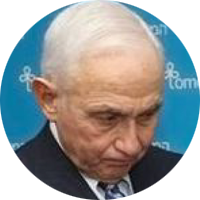
LESLIE WEXNER
CHAIRMAN & CEO L BRANDS
Wexner is an American billionaire businessman, the founder and chairman emeritus of L Brands (formerly Limited Brands). Wexner grew a business empire after starting The Limited, a clothing retailer with a restricted selection of profitable items, and later expanded his holdings to include Victoria's Secret, Abercrombie and Fitch, Express, and Bath & Body Works. Wexner announced, in February 2020, that he was transitioning from CEO of L Brands into the role of chairman emeritus.
In 1963, Wexner was lent $5,000 from his aunt Ida which was then matched by a bank in order to start The Limited. The store took its name due to its limited focus on moderately priced merchandise such as skirts, sweaters and shirts that turned over quickly and generated greater revenues. Wexner opened the first store on August 10, 1963 in the Kingsdale Shopping Center in Upper Arlington, Ohio, a suburb of Columbus.
A. Alfred Taubman reportedly served as a mentor for Wexner, starting in the mid 1960s, and the two partnered on many deals involving Taubman's shopping malls over the years.
Jewish causes
Wexner explained that because "growing up, my folks moved around a lot, and I never got a good Jewish education", he felt unprepared to take leadership roles in the Jewish community. So, in 1985 he joined Rabbi Herbert A. Friedman to establish the Wexner Foundation's first core program, aimed "to educate Jewish communal leaders in the history, thought, traditions and contemporary challenges of the Jewish people. This was a key step in the attempt of collectivizing Jewish Americans and influencing their views to mirror the age old Jewish religious establishment and the billionaire "philanthropists". This was consolidated with the formation of Mega Group.
In 1991, Wexner formed with the likes of billionaire Charles Bronfman, Mega Group. The group is a loosely organized club of some of the country's wealthiest and most influential businessmen who desired to manage and direct the umbrella of "Jewish causes" to suit their agenda and increase and consolidate their power and agenda together. Meanwhile using their "philanthropy" as a guise and shield to hide behind and carry out objectives under a collective "Jewish" banner that they manufactured. Thus, any criticism of them or this power structure can be simple dismissed as "antisemitic" to avoid any real discussion on what has and is really taken/taking place.
Jeffrey Epstein
Wexner had a close relationship with Jeffrey Epstein that began in the 1980s and continued until at least 2007. He is said to be the primary billionaire client of Epstein, a financier that claimed to only work with clients with a net worth of one billion USD. Epstein became Wexner's financial manager in 1987. Epstein had gained a reputation at Bear Stearns of helping high end clients such as Edgar Bronfman avoid paying taxes. This is the main reason Wexner hired Epstein.
Wexner purchased the New York property, the Herbert N. Straus House, in 1989 and later transferred it to Epstein in the mid-1990s following his marriage to Abigail. The New York property was a key location were Epstein exploited under-aged girls for many years.
In July of 1991, Wexner granted Epstein power of attorney and also instated him as a trustee on the board of the Wexner Foundation. Wexner would later claim Epstein stole US$46 million via the foundation.
One of the key links between Epstein and Wexner's businesses was Jean Luc Brunel and his MC2 modelling agency that was used by L Brands' various companies. Epstein, MC2 modeling agency founder Jean Luc Brunel, and their associates “deliberately engaged in a pattern of racketeering that involved luring minor children through MC2, mostly girls under the age of 17, to engage in sexual play for money.” Elisabetta Tai, an Italian model whose agent sent her to meet Epstein at his Manhattan residence for a casting for Victoria’s Secret. Some models were propositioned to give nude massages, some ordered to undress and take nude photos, some raped.
Wexner has been accused of failing to take action when complaints were raised against Epstein, including after executives of L Brands reported (in the mid-1990s) that Epstein was abusing his power and connection to Wexner by posing as a recruiter of Victoria's Secret models. The artist Maria Farmer contacted local and federal authorities about an assault she allegedly endured by Epstein and Ghislaine Maxwell while working as an artist-in-residence on Wexner's Ohio property in 1996. Within a year of Farmer's complaint, the actress Alicia Arden filed a police report in Los Angeles detailing that Epstein had misrepresented himself as a recruiter for Victoria's Secret prior to another alleged assault.
In early 2006, Epstein was charged in Florida with "multiple counts of molestation and unlawful sexual activity with a minor." The New York Times reported that it was 18 months after the charges were raised that Wexner cut his ties to Epstein.
In August 2019, following Epstein's second incarceration and prior to his death, Wexner addressed the Wexner Foundation in writing, releasing a statement that his former financial advisor, Jeffrey Epstein, had “misappropriated vast sums of money” from him and from his family. Wexner retained services of criminal defense attorney Mary Jo White of Debevoise & Plimpton. Wexner faced additional public scrutiny in late 2019 (and again in early 2020) when a group of wrestlers who are survivors of the Ohio State University abuse scandal publicly called on state and federal officials to conduct further inquiry into Maria Farmer's allegations of sexual assault at the Wexner property. The wrestlers called for accountability surrounding the Wexner family's involvement in Epstein's abuse and raised the issue of the continuing influence of Abigail and Leslie Wexner serving as the "biggest and best-known benefactors" of the university.
Since the passing of Epstein, Wexner has claimed that he is a victim of Epstein himself. Despite claiming to have cut Epstein off over 10 years before his death (2019), he conveniently says he has just now noticed that $46 million had mysteriously disappeared and was unaccounted for. Has hard as that is to believe the charge of the missing money could be used to stake a claim against Epstein's estate, something the sexually exploited victims are pursuing to get some compensation.
According to Rob Meister, whom introduced Epstein to Wexner, stated that Wexner's claims could be true highlighting that Wexner was never a figures guy. Not being a figures guy and not noticing $46 million being missing for over a decade are obviously two different things. If true it would completely contradict Wexner's business management background and ability to create and operate a multi-billion dollar business for decades.
The media obtained a leaked document from the Wexner Foundation entitled, "Wexner Analysis: Israeli Communication Priorities 2003." The report was prepared to sell the war in Iraq and provides insight into Wexner’s relationship with the state of Israel.
Wexner’s philanthropic side is more public. In 1998, the Wall Street Journal reported that Wexner was part of the “‘Mega Group,’ a loosely organized club of 20 of the nation’s wealthiest and most influential Jewish businessmen.” The Mega Group meets purportedly to discuss “philanthropy,” but others have speculated that their charitable interests are often a cover for lobbying activities on behalf of Israel. The Wall Street Journal identified the late Max Fisher, a Detroit financier and billionaire, as a member of the Mega Group. Fisher was used as a private Middle East diplomat by President Gerald Ford during the 1970s and is considered Wexner’s mentor.
The Wexner Analysis points out that “. . . many sympathize with the plight of the Palestinian people, [but] there is no love lost for Yassir Arafat.” So, when the Wexner Analysis report was leaked, it caused a stir but no questioning of Wexner’s little-explored relationships with Epstein and Fisher. Frank Lutz, the Republican Party pollster and spin doctor, prepared the Wexner Analysis. Lutz’s report essentially outlines a political PR campaign “as the post-war dust settles over the Iraqi desert.”
The Wexner Analysis emphasized that “now is the time to link American success in dealing with terrorism and dictators from a position of strength to Israel’s ongoing efforts to eradicate terrorism on and within its borders.”
Lutz, realizing the value of an Arab bogeymen, stresses that “‘Saddam Hussein’ are the two words that tie Israel to America and are most likely to deliver support in Congress. The day we allow Saddam to take his eventual place in the trash heap of history is the day we lose our strongest weapon in the linguistic defense of Israel."
In the “Essential Conclusion” section of the report, Lutz offers 10 recommendations. The first is: “Iraq colors all. Saddam is your best defense, even if he is dead. For a year–a SOLID YEAR–you should be invoking the name of Saddam Hussein and how Israel was always behind American efforts to rid the world of this ruthless dictator and liberate their people.”
Harvard
Wexner financed the JFK School of Government at Harvard University and is connected to major figures at Harvard University. Wexner invited Epstein (another large donor to Harvard) and Harvard's Felix Frankfurter Professor Alan Dershowitz to his 60th birthday party along with former Israeli PM Shimon Peres.
Some of the main reasons why elites like Wexner and Epstein were involved in high educational institutions like Harvard is they provide the brightest prospects and a lot of tax payer funded research and development of technology that can be transitioned into commercial use and having access can provide insider information and opportunities for themselves and allies.
Shimon Peres for instance, approved the Israeli Talpiot Program and is linked to Epstein, Wexner and Dershowitz. The rise of Israeli start ups is hardly a coincidence.
Wexner allegedly operates a huge international drug running operation previous run by Max Fisher.
Hollinger International
Wexner was a director at Hollinger International Inc. due to his relationship with Israel, influence and contacts that he was involved in overseeing the Jerusalem Post along with Lord Weidenfeld. During this time period the JP pushed a hardcore right-wing Zionist agenda even calling for the assassination of Yasser Arafat. Meanwhile opposing any progress in peace talks, dehumanizing Palestinians and championing Likud.
Other criminal allegations
Wexner allegedly has been imvolved in a huge international drug running operation. As the logistics man for Wexner, Jeffrey Epstein arranged the arrival of Southern Air Transport (SAT) to Rickenbacker Air Force Base in Columbus, Ohio. The airline, formerly Air America, was infamous as an illegal gun- and drug-running operation. SAT filed for bankruptcy in Columbus on October 1, 1998, the same day the Central Intelligence Agency Inspector General issued a report linking the cargo hauler to allegations of drug-running in connection with U.S.-backed Contra rebels in Nicaragua in the 1980s
More information here
He is also allegedly connected to serious organised crime figures implicated in a mob-style hit on Arthur Shapiro, an attorney of Limited (now L Brands).
More information here
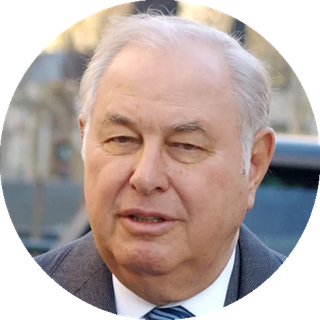
A. ALFRED TAUBMAN
Taubman made his fortune as CEO of Taubman Centers, a company he founded in the 1950's. The company built major mall complexes across the United States. These malls became a major part of the consumer culture of the United States.
Taubman was a close friend and business associate of Max M. Fisher and Henry Ford II. In 1977, he joined with Max Fisher and Henry Ford II to buy the 73,000-acre (300 km2) Irvine Ranch south of Los Angeles for $337 million; Fisher's group would sell the property six years later for $1 billion.
Taubman was also a mentor to Les Wexner and they had a business arrangement involving Wexner's stores and Taubman's shopping malls.
Under the guise of philanthropy these businessmen use/d their money to bolster and protect the status quo perpetuated by the establishment by shaping the minds of young men and women who desire careers in government in the top educational institutions.
Hollinger International
A. Alfred Taubman was a director at Hollinger International Inc, he was also the former CEO of Sotheby’s. He remained on Hollinger’s board even after he had been convicted of violating antitrust laws
Anti-trust conviction
In the early 2000s, an investigation into alleged price-fixing between Sotheby's and rival auction house Christie's led to a confession by Sotheby's CEO Diana Brooks of an elaborate price fixing scheme with her counterpart at Christie's, Christopher Davidge. In a plea bargain arrangement, prosecutors offered to keep her out of prison if she agreed to implicate Taubman. She did, and thereafter Taubman was convicted in a jury trial of price fixing. He was fined $7.5 million (USD) and imprisoned for ten months in 2002 for antitrust violations. Taubman was released in 2003, and continued to insist on his innocence despite being a major benefactor in the scheme.
Trump
Taubman and US President Donald Trump were long time friends. They attended the Mike Tyson vs Carl Williams boxing event together. Donald Trump also attended Taubman's book launch along woth Henry Kissinger.
Epstein - Taubman's name appears in Jeffrey Epstein's black book (Taubman’s son Bobby is also in Epstein’s black book).
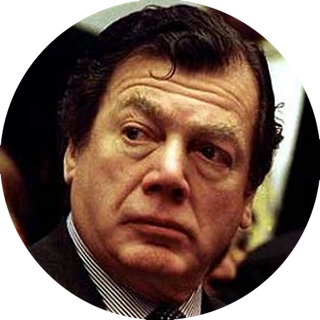
EDGAR BRONFMAN SR
PRESIDENT & CEO OF SEAGRAM
Edgar Miles Bronfman (June 20, 1929 – December 21, 2013) was a Canadian-American businessman. He worked for his family distilled beverage firm, Seagram, eventually becoming president, treasurer and CEO. As President of the World Jewish Congress, Bronfman is especially remembered for initiating diplomacy with the Soviet Union, which resulted in legitimizing the Hebrew language in Russia, and contributed to Soviet Jews being legally able to practice their own religion, as well as emigrate to Israel.
Seagram
Following his father's death, in 1971, Bronfman took over as president, treasurer and director of Distillers Corporation-Seagram Ltd. His son, Edgar Jr., succeeded him as chief executive officer of the company in 1994.
The Bronfman family fortune was built by the father of Edgar and Charles, Sam Bronfman, who during Prohibition merged his Distillers Corp. in Montreal with Joseph E. Seagrams & Sons, Ltd. to supply "bootleggers" with top brand booze, becoming what Israel Shamir (writing on Mega) called a "Mafia boss." Under the successor co-chairmanship of Charles and Edgar Bronfman, Seagrams took a 24% controlling interest in DuPont. But soon after Edgar's son, Edgar Bronfman, Jr., became CEO of Seagrams, he sold off the holding, purchasing Universal Pictures and the world's largest record distributor, Polygram Records. On June 19, 2001, the Bronfmans sold Seagrams to former Lazard Frères partner Jean-Marie Messier, owner of media and communications conglomerate Vivendi, for $34 billion.
Through Seagrams and the WJC, Edgar Bronfman was a top business collaborator of some of the most prominent figures in the former Soviet Union and East Germany. Just months before the fall of the Berlin Wall and the collapse of East Germany, Bronfman was given the highest civilian award by the East German Communist Party, for his efforts to salvage the communist state.
World Jewish Congress
When former World Jewish Congress President Philip Klutznick stepped down in 1979, Bronfman was asked to take over as acting head of the organization, then was formally elected President by the Seventh Plenary Assembly, in January 1981. Together with his deputy, Israel Singer, Bronfman led the World Jewish Congress in becoming the preeminent international Jewish organization that it is today. Initiatives such as those seeking to help free Soviet Jewry; to expose Austrian President Kurt Waldheim's Nazi past; and to help victims of the Holocaust and their heirs to acquire compensation (including by Swiss banks); raised Bronfman's international profile during the 1980s and 1990s.
Bronfman wrote a letter to President Bush in mid-2003 urging Bush to pressure Israel to curb construction of its controversial West Bank separation barrier, co-signed by former Secretary of State Lawrence Eagleburger. Former Israeli prime minister Shimon Peres said in support of Bronfman, "Clearly, issues that are open for debate in Israel should be open for debate in the Jewish world."
Bronfman stepped down from his post as President on May 7, 2007, amid scandals and turmoil about Israel Singer. Bronfman and the WJC in the Supreme Court of New York County; Bronfman's suit claimed "that Singer did not pay back more than $500,000 in personal loans stemming from a 2004 investigation by the New York State Attorney General into the WJC's finances."
Bronfman's leadership is known for transforming the World Jewish Congress into the powerful organization it is today. As president, Bronfman is remembered most for his diplomacy with the Soviet Union in freeing Soviet Jews.
At his memorial held in January 2014, Former Secretary of State Hillary Clinton said of Bronfman, "Edgar was never shy of pressing an issue in the face of injustice," as she spoke about the many causes he championed in his lifetime.
Anti Defamation League (ADL)
Bronfman was the honorary vice chairman of the ADL as well as heading the Greater New York Appeal. According to Executive Intelligence Review, Bronfman was among an inner circle group called the National Committee that really ran the ADL.
Under Bronfman's watch ADL awarded criminal bigshot Morris Dalitz its Torch of Liberty award in deep appreciation for the gangster's financial assistance.
Soviet Jewry / Jackson-Vanik Amendment
In 1983, Bronfman suggested that "American Jews should abandon their strongest weapon, the Jackson–Vanik amendment, as a sign of goodwill that challenges the Soviets to respond in kind." The use of the word weapon" to describe the Jackson-Vanik amendment is an interesting interpretation. It is certainly worth speculating
what he means by this. It is also interesting to note that Russia President Vladimir Putin tried to use his relationships with Hank Greenberg, who was the chairman and CEO of the American International Group (AIG), to repeal the Jackson-Vanik provisions in the United States.
The initial goal of the Jackson-Vanik amendment was to apply economic pressure to the Soviet Union in an effort to allow citizens within the Soviet Union to emigrate. The idea behind the amendment was that Soviet Jews should be able to move to Israel or the United States. That could well be why Bronfman described the amendment as a weapon. But that wasn't the full extent of Jackson-Vanik. As many of the emigrants tended to be young and well educated, that led to the brain drain, a financial drain and increased demographic strain. Another resulting consequence was the emergence of a international criminal organization known as the "Red Mafiya". Criminal enterprises via the Soviet black market networks developed internationally gaining a stronghold in New York and Israel. This also created an economic strain on the USSR as money was moved to the more lucrative West.
After Mikhail Gorbachev's ascension in 1985, Bronfman secured an invitation to the Kremlin and on September 8–11, visited Moscow, becoming the first World Jewish Congress President to be formally received in Moscow by Soviet Officials. Carrying a note from Shimon Peres, Bronfman met with Gorbachev, and initiated talks of a Soviet Jewish airlift. It is said that Peres' note called on the Soviet Union to resume diplomatic relations with Israel.
In a Washington Post profile a few months after the September trip, Bronfman laid out what he thought had been accomplished during his September meetings. He said, "There's going to be a buildup of pressure through the business community. The Russians know the Soviet Jewry issue is tied to trade ... My guess is that over a period of time, five to ten years, some of our goals will be achieved." Author Gal Beckerman says in his When They Come For Us We'll Be Gone, "Bronfman had a business man's understanding of the Soviet Jewish issue. It was all a matter of negotiation, of calculating what the Russians really wanted and leveraging that against emigration."
In March 1987, Bronfman along with fellow delegates of the World Jewish Congress, flew to Moscow once again. Bronfman held three days of discussions with senior Soviet officials. Together, Bronfman and the World Jewish Congress delegates advocated for the freeing of the Jews living under Soviet rule.
On June 25, 1982, Bronfman became the first representative of a Jewish organization to speak before the United Nations. Speaking before the Special Session on Disarmament, Bronfman said, "world peace cannot tolerate the denial of the legitimacy of Israel or any other nation-state ... [and the] charge that Zionism is racism is an abomination."
Bronfman's goals for the visit were threefold. In his book, The Making of a Jew, he explained: First, he called for the release of all so-called Prisoners of Zion, the Jews imprisoned for expressing a desire to emigrate to Israel. Bronfman also wanted freedom for Jews in the Soviet Union to practice their religion. Finally, he called for the freedom for Soviet Jews to learn Hebrew, which he claimed was forbidden at the time despite there being Zionist sponsored Hebrew schools in Moscow.
A year later, in 1988, Bronfman returned to Moscow to meet with Soviet Foreign Minister Eduard Shevardnadze. This trip resulted in the Soviets promising to legalize the teaching of Hebrew in the Soviet Union and to establish a Jewish cultural center in Moscow. Bronfman said of this visit, "By their actions, they are indicating that they are eager to get the question of Jewish rights and emigration off the bargaining table. And it is actions, rather than simply words, that count."
The ultimate goal of all of this was to collapse the USSR, loot it and open it up to multinational corporations and international banks.
NXIVM Cult
In 2003, a Forbes magazine article reported that Bronfman took a course from NXIVM, endorsing it, but had since "grown troubled" due to the "emotional and financial investment" daughters Clare and Sara were giving to Raniere's group, remarking that Clare had loaned NXIVM $2 million, though she denied this. Bronfman was quoted stating, "I think it's a cult." In 2018, Raniere, then daughter Clare and her long-time mentor NXIVM president Nancy Salzman, among others, were arrested on federal charges in connection with NXIVM. In September 2018, daughter Sara was named the defendant in a 2018 class-action suit regarding her NXIVM activities.
After Edgar distanced himself from the cult, Raniere used his influence over his daughters to convince them that their father was conspiring against NXIVM and alleged financial investments Raniere made. The Bronfman sisters lost huge amounts of money whether Raniere took the money or lost it on bad investments isn't clear.
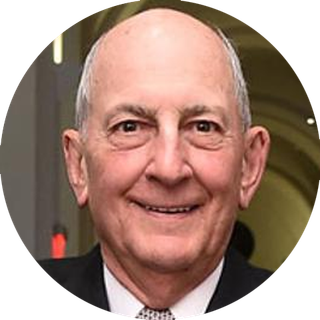
CHARLES BRONFMAN
Canadian-American businessman and philanthropist and is a member of the Canadian Jewish Bronfman family. With an estimated net worth of $2 billion (as of 2013), Bronfman was ranked by Forbes as the 14th wealthiest Canadian and 736th in the world.
Seagram
Bronfman held various positions in the family's liquor empire, Seagram, from 1951 to 2000. In 1951 Bronfman's father Samuel Bronfman gave Charles a 33% ownership stake in Cemp Investments, a holding company for him and his 3 siblings which controlled the family's corporate empire. Under the leadership of Charles and brother Edgar, it controlled billions of dollars in liquor, real estate, oil and gas, and chemical companies.
United Jewish Communities
Koor Industries
Charles Bronfman had been co-chairman of Seagrams, until its merger with Vivendi. He went on to chair Koor Industries Ltd., which is a high-tech holding company at the heart of the Israeli military-industrial complex. He left the company in 2005. He was also chairman of Claridge-Israel, Inc., which took over Bank Hapolim, when the Israeli government privatized it. This deal was brokered by Ted Arison, an Israeli who, in the United States, built the Carnival Cruise Lines into a billion-dollar business. Arison got his financing to start Carnival from Meshulim Riklis, one of junk-bond manipulator Michael Milken's major clients, and a close ally of Israeli Prime Minister Ariel Sharon.
Taglit Birthright
Bronfman and Michael Steinhardt co-founded Taglit Birthright, a program which provides a free, educational travel experience to Israel for young Jewish adults. Bronfman is one of its principal donors. Since 1999, the program has sent more than 700,000 young Jews from around the world on a 10-day free trip to Israel.
Bronfman Philanthropies Inc
Bronfman is Chairman of the Andrea and Charles Bronfman Philanthropies Inc., a family of charitable foundations operating in Israel, the U.S., and Canada. Since its foundation in 1986, the charity spent more than $340 million to about 1,820 organizations. In 2016 Bronfman closed the charity.

MICHAEL STEINHARDT
Michael H. Steinhardt (born December 7, 1940) is an American investor, hedge fund manager, and "philanthropist".
Steinhardt is offspring of the Prohibition-era "Jewish Syndicate" of National Crime Boss Meyer Lansky. His father, Sol Frank "Red" Steinhardt, was a bigtime gambler and convicted jewel fence, who worked with Meyer Lansky. "Red" Steinhardt was sent to Sing Sing on a five- to ten-year sentence, a fact that Michael kept off of his resume, in order to get his start on Wall Street
In 1967, he founded a hedge fund, Steinhardt Partners, that boasted an averaged an annualized return for its clients of 24.5% from 1967 to 1978 His fund lost 1/3 of its value in the 1994 bond market crisis. After recouping in part with a 20% return in 1997, he closed the firm, took the money, and ran.
In 2004 he made his hedge fund comeback with WisdomTree Investments, a fund with nearly US$43 billion in assets under management in 2020.
In a January 2014 article by Bloomberg, he was referred to as "Wall Street's greatest trader." Forbes Magazine reported his net worth at $1.1 billion as of October 2018.
Steinhardt Partners
In 1967, using earnings from his investments, Steinhardt founded the hedge fund Steinhardt, Fine, and Berkowitz (later Steinhardt Partners) with co-investors William Salomon, former managing partner of Salomon Brothers and Jack Nash, founder of Odyssey Partners. Steinhardt Partners averaged an annualized return for its clients of 24.5%, after a 1% management fee and a "performance fee" of 15% (early in his career, later 20%) of all annual gains, realized and unrealized, nearly triple the annualized performance of the S&P 500 Index over the same timeframe. After decades of successfully managing the fund, Steinhardt and his firm were investigated for allegedly trying to manipulate the short-term Treasury Note market in the early 1990s. He personally paid 75% of a total fine of $70 million as part of settlement with the U.S. Securities and Exchange Commission and Department of Justice. His firm made $600 million on the Treasury positions. In his book, "No Bull," Steinhardt said he did nothing wrong, but merely settled the case in order to "move on." Following a negative performance in his hedge fund in 1994, Steinhardt Partners enjoyed an excellent 1995, with performance in line with its historical record. The hedge fund closed and distributed all monies to its limited partners at the end of 1995.
Politics
Steinhardt is active in political circles ranging from centrist Democratic to neo-conservative, having been a past chairman of the Democratic Leadership Council and a board member of the Foundation for the Defense of Democracies (FDD), to which he has donated $850,000.
FDD was created by Mega Group members and their operatives to further their war on terror agenda and Middle-East foreign policy.
AP reported that FDD was paid $2,500,000 by United Arab Emirates to the FDD via disgraced Elliott Broidy and disgraced pedophile George Nader, to host a conference amidst Qatar diplomatic crisis about the country's role as a state-sponsor of terrorism. FDD's high-profile conference of 23 May 2017 was in line with UAE's policy at the time, which officially alleged that Qatar finances Islamist groups, adding that emails leaked shortly after show that UAE's Ambassador Yousef Al Otaiba had a "cosy relationship" with the FDD.
Steinhardt was chairman, for a decade, of the Democratic Leadership Council. He resigned from the organization in protest over President Bill Clinton's appointment of Lani Guinier (a Jamacan-Jewish civil rights activist) to a top Justice Department post, and refused to support Clinton's reelection in 1996, even though Clinton had succeeded him as DLC chairman.
Jewish Causes
Steinhardt is chairman of the board at The Steinhardt Foundation for Jewish Life and Taglit-Birthright Israel. He also makes public appearances, speaking with young Jewish kids through organizations such as Ezra USA and RAJE. He has been an active philanthropist, donating over $125 million to Jewish causes. He and Charles Bronfman co-founded Taglit-Birthright Israel, which has to date sent over 500,000 young Jews aged 18–26 on a 10-day trip to Israel without charge. In 2009 Steinhardt gave the American Hebrew Academy $5 million. In addition, to help with its fundraising, AHA (American Hebrew Academy) released an advertisement featuring his endorsement.
Steinhardt has founded a network of Hebrew-language charter schools, which are secular and open to both Jews and non-Jews. He has said "these schools teach Hebrew in a way that is demonstrably superior to Jewish day schools".
Sexual harassment and Hillel investigation.
On September 12, 2018 The Jewish Week reported that Hillel International was investigating Steinhardt for unwelcome “inappropriate sexual remarks” by two female employees of one of the many organizations he supports. The Jewish Week story quoted “sources close to the investigation” as saying that since, 2015, when the first complaint by a female employee occurred, it has been a “practice” within the organization for no female employee to have meetings with Steinhardt alone. The second woman making allegations received a written apology from Steinhardt, dated Aug. 23, 2011, acknowledging his inappropriate comments made toward her and two male colleagues at a meeting the year before. The report noted that Hillel had “quietly” removed his name from the board of governors listed on their website while the organization was investigating the claims. Hillel made an official statement that the complaints about sexual harassment by its donors were justified. Steinhardt stated in response to the findings “If I had been told immediately about concerns regarding anything I said at the time, I would have apologized immediately. I only recently learned about this investigation when Hillel called me about comments I made several years ago. I am sorry and deeply regret causing any embarrassment, discomfort or pain, which was never my intention.” As of March 2019, six women have claimed that Steinhardt had made sexual requests of them.
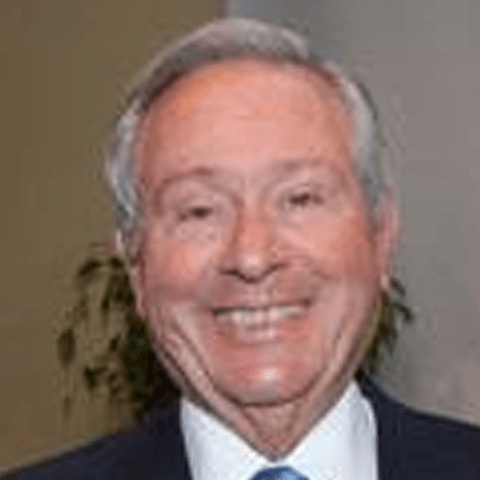
LEONARD ABRAMSON
Abramson is the founder and former CEO of U.S. Healthcare, a medical insurance company. He sold the company to Aetna Insurance for US$990 million.
He owned a stake in Israel's Bank Hapolim and owned the Maine Merchant Bank in Portland, which is a $20 million non-deposit institution, whose ostensible purpose is to make high-risk, venture-capital investments
Abramson likes to portray himself as a "philanthropist". Between 2001-2004 the Abramson Family Foundation (of Leonard Abramson) donated $822,523 to the hawkish Israeli lobbying group Foundation for the Defense of Democracies.
The FDD's mission "was to provide education to enhance Israel's image in North America and the public's understanding of issues affecting Israeli-Arab relations".
FDD has been identified as part of the Israel lobby in the United States by several scholarly sources. Sima Vaknin-Gil, Director General of Israel's Ministry of Strategic Affairs, had stated that the FDD works in conjunction with Israeli government, in particular the ministry she works for.
On 15 November 2019, FDD was officially registered as a lobby under Lobbying Disclosure Act of 1995.
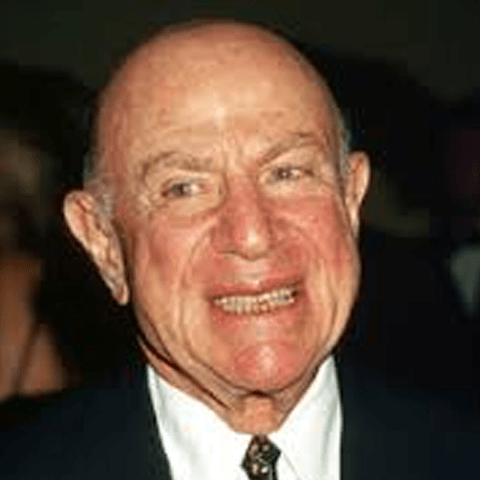
LAURENCE TISCH
Laurence Alan "Larry" Tisch (March 5, 1923 – November 15, 2003) was an American businessman, Wall Street investor and billionaire.
Tisch, with his brother Preston "Bob" Tisch, built a major hotel chain, forming the holding company Loews Corporation, that also included a chain of movie theaters. And, Loews acquired Lorillard Tobacco in 1960, which produced Kent cigarettes.
By the 1980s of the "Predator's Ball," Laurence Tisch worked with convicted inside-trader Michael Milken, who originated junk bonds, through which Tisch gained fame for his 1986 takeover of the Colombia Broadcasting System. In 1995, Tisch had to sell off CBS to Westinghouse.
Loews Corp
Loews Corporation is one of the largest diversified holding companies in the United States. It was previously the parent company of Lorillard Tobacco Co.,Inc., in New York and owns Loews Hotels and the Bulova watch company. Lorillard manufactures Newport and Newport Menthol cigarette brands, which account for 90% of its income.
In 2011, Loews reported $14,127,000,000 in revenues.
Loews Corporation, "a holding company, is one of the largest diversified corporations in the United States. Its principal subsidiaries are listed below.
- CNA Financial Corporation (90 percent owned) is one of the largest commercial property-casualty insurance companies in the United States.
- Diamond Offshore Drilling, Inc. (51 percent owned) is one of the world's largest offshore drilling companies, offering comprehensive drilling services to the energy industry around the world. The company owns and operates 44 offshore drilling rigs.
- HighMount Exploration & Production LLC (100 percent owned) is engaged in exploration and production of natural gas. HighMount's primary holdings are located in the Permian Basin in Texas, the Antrim Shale in Michigan and the Black Warrior Basin in Alabama.
- Boardwalk Pipeline Partners, LP (70 percent owned) is engaged in the operation of interstate natural gas pipeline systems.
- Loews Hotels (100 percent owned) is one of the country's top luxury lodging companies. It owns and operates hotels and resorts in the United States and Canada."
Also as of May 1994, Lorillard Tobacco Company was a wholly-owned subsidiary of Lorillard Inc., and Lorillard Inc. was a wholly-owned subsidiary of Loews. However, in June, 2008, the wealthy Tisch family, owners of the Loews Corporation, spun off Lorillard into a free-standing unit, thereby divesting the family of all its tobacco holdings.
Fix The Debt Campaign
The Campaign to Fix the Debt is the latest incarnation of a decades-long effort by former Nixon man turned Wall Street billionaire Peter G Peterson to slash earned benefit programs such as Social Security and Medicare under the guise of fixing the nation's "debt problem." Loews Corp. is part of the Campaign to Fix the Debt as of February 2013.
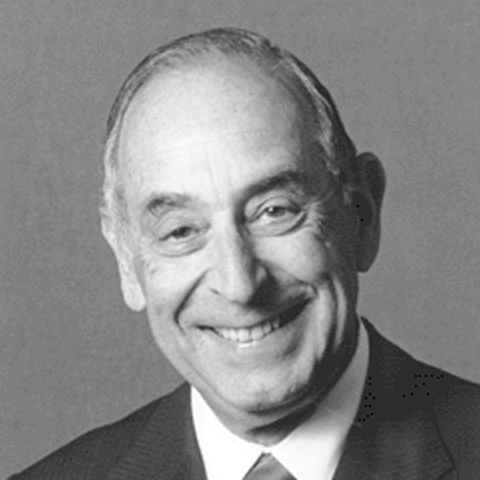
HARVEY M. MEYERHOFF
Harvey Meyerhoff "is Chairman Emeritus and a member of the United States Holocaust Memorial Council, a trustee of The Johns Hopkins University, and a trustee and past Chairman of the Johns Hopkins Health System and The Johns Hopkins Hospital. The Raoul Wallenberg Committee recognized Mr. Meyerhoff for his unceasing work to make the United States Holocaust Museum a reality."

STEVEN SPIELBERG
"Steven Spielberg is a principal partner of DreamWorks Studios. One of the industry’s most successful and influential filmmakers, Spielberg has directed, produced, or executive produced some of the top-grossing films of all time, including “Jurassic Park” and “E.T. The Extra-Terrestrial.”...
"Spielberg has also devoted his time and resources to many philanthropic causes. The impact of his experience making “Schindler’s List,” led him to establish the Righteous Persons Foundation using all his profits from the film. He also founded Survivors of the Shoah Visual History Foundation, which has recorded more than 52,000 Holocaust survivor testimonies. Spielberg executive produced “The Last Days,” the Shoah Foundation’s third documentary, which won the Academy Award® in 1999 for Best Documentary Feature. In 2005, the Foundation’s repository of testimonies were transferred to the University of Southern California. The new USC Shoah Foundation Institute for Visual History and Education is dedicated to research and scholarship in the humanities and social sciences.

